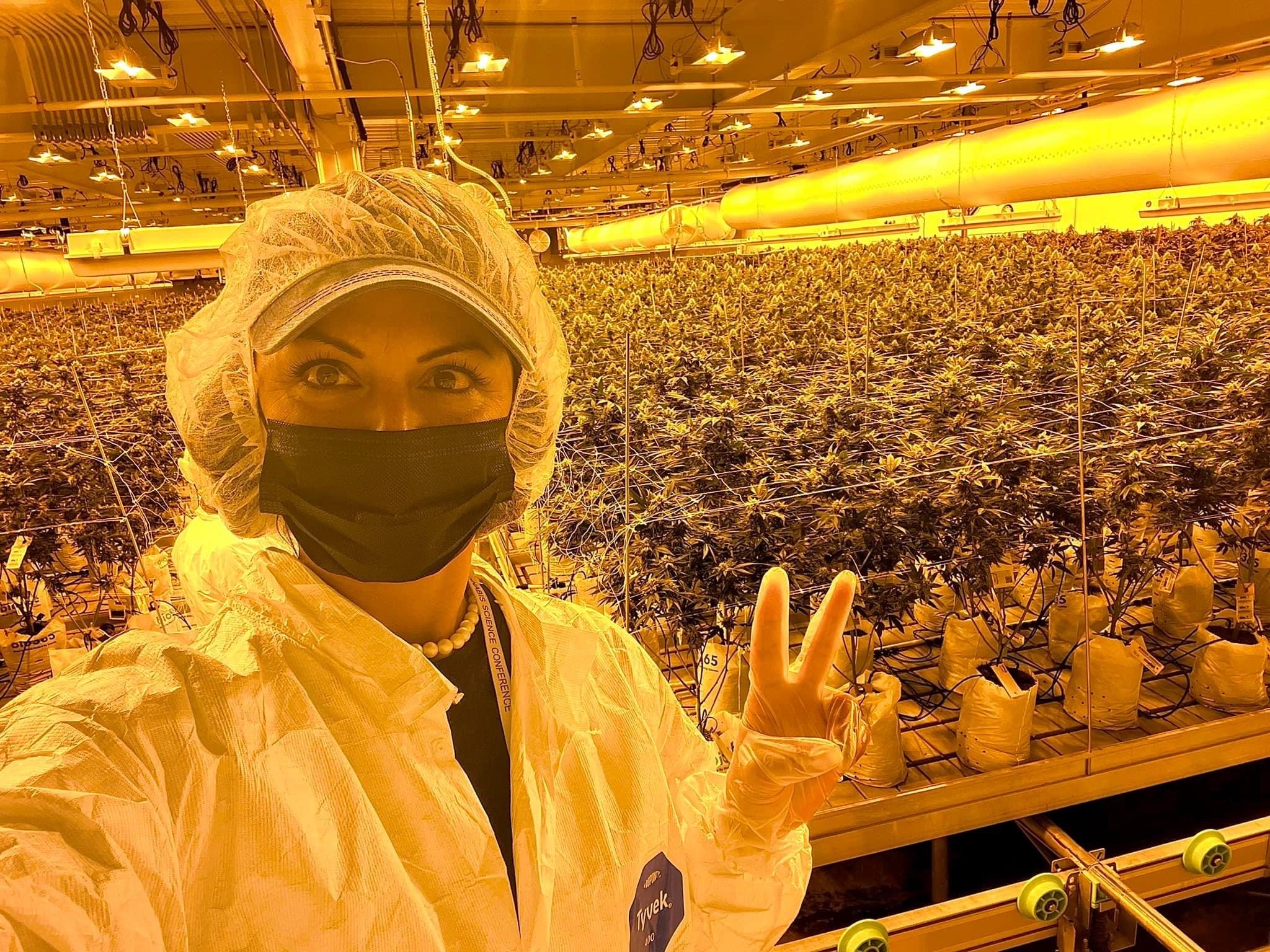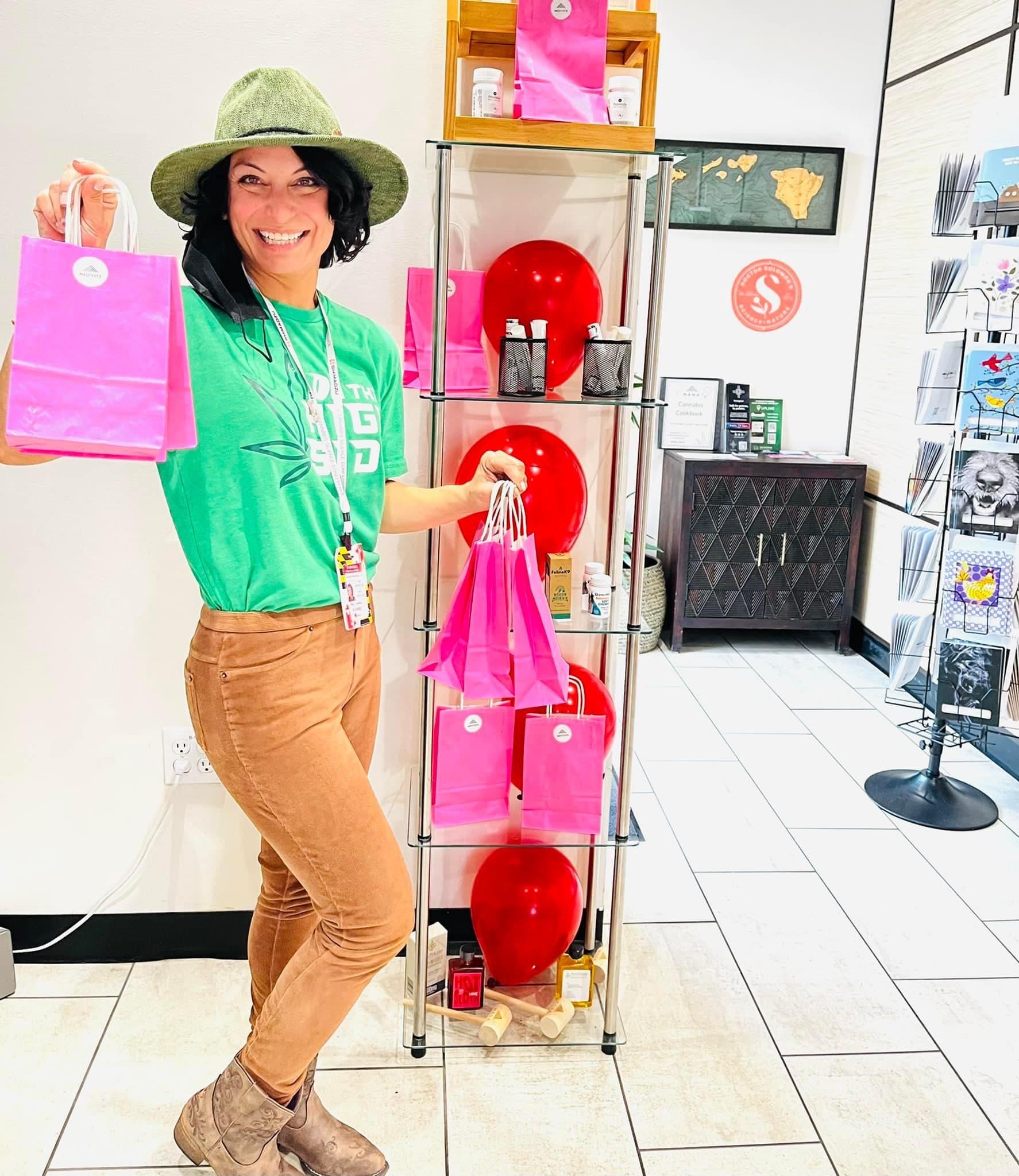Rita Lynn Lawrence, Edgewater, Maryland
Rita Lynn Lawrence has faced a life-long struggle with painful congenital medical conditions that have proven difficult to treat. Even accepting the diagnosis of muscular dystrophy and the winged scapula that resulted from weakened back muscles was difficult. Doctors could offer no real treatment of medical solution, just palliative care.

Rita Lynn was living in Wisconsin then. One evening in 2013, some friends were over for dinner, and one said she was going outside to smoke. Rita Lynn expressed surprise and asked why. Her friend said to come outside and she’d tell her.
“She had health issues and she said this particular cigarette helped with her issues,” Rita Lynn remembers. “I said, I’ve never heard of that. I will try that! And it did! It immediately reduced pains and struggles I’d had since childhood and had never had an answer to.”
That evening was a turning point for Rita Lynn. She was very active in her church and worked with religious non-profits because she really wanted to help people and practicing some sort of spirituality was how she knew to do that. Her experience with cannabis was a revelation.
“That’s when I realized there are things on this earth that can provide that,” Rita Lynn remembers. “People say, I need a miracle, and that’s how I felt for years. I had to believe something miraculous could happen and take me out of this pain, something other than taking my own life.
“As a parent, I knew I couldn’t do that. I was a mom,” Rita Lynn says. “I had to learn what to do to still function and continue to be a parent. Cannabis took me out of the mindset that I just couldn’t do this. It brought hope.”

After two years, she learned that lawmakers in Maryland had approved a medical cannabis program. Fortuitously, Rita Lynn already owned a house in Maryland that she was renting out, so once the bill was signed in 2015, she immediately made plans to leave Wisconsin and move there.
“Once I saw the Maryland medical cannabis program would begin, I began my process, because once this program is live, I want to be there to try it out, I need to get legit,” Rita Lynn remembers. “I was scared. With family and kids, I felt I had unsafe access.”
Rita Lynn visited Maryland dispensaries before they opened and met with owners, and once she found one near her house there, she relocated with her family to be there the week they opened in 2016. In those early days of the Maryland program, patient education was a priority, and there were many events to inform people about cannabis.
“I had known for years it was working, but I didn’t know why,” Rita Lynn says. “I didn’t know how to access the real studies. Once I saw the education programs, I knew I wanted to be more involved.”

“That’s just a service I offer for patients,” Rita Lynn says. “I can cook with their medicine in their kitchen, and that’s just really beautiful because I can work with them to make their experience of the plant a positive one. I care that people have safe access.”
In 2020, she became a patient care specialist for a local dispensary.
“It’s beautiful that I feel like I’ve found my place. I’m in a community and industry that really do care,” Rita Lynn says. “Americans for Safe access has come into my life as part of this ecosystem.”
Rita Lynn describes herself as on a new path of life, comforted by being with nurses and doctors who care enough to share the truth, even when it may threaten their professional standing.
“They could have their licenses revoked; they’re putting they’re life on the line. I compare this to the US Marine Corps, and their ‘no soldier left behind,” Rita Lynn says. “ASA reminded me of that with the No Patient Left Behind campaign. This is the same thing. We’re at war, not with people but with pain, with suicide, with depression, with anxiety, with covid.”
Now that Rita Lynn’s three children are all in school, she has more time and is using it to get more serious about advocacy. She has become a voice for patients in Maryland and is working on outreach events with her dispensary and local nonprofit to help more people see the benefits of cannabis.
“I was so limited in my disability thinking, and I really struggled with my surgeries. There was a time when there was no hope for the future,” says Rita Lynn. “The future is bright. I can actually feel merry. There is so much opportunity for me now. This is an industry where there is opportunity for all of us.”
This profile was originally published in the July 2022 ASA Activist Newsletter
Share this page






















